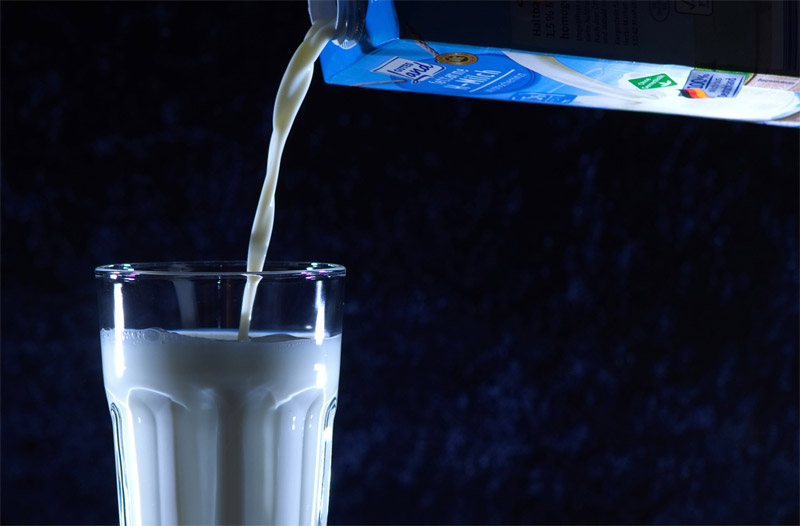People often have trouble sleeping and stay in bed without sleep till late hours. To sleep, some trust abstinence from alcohol and phone, others trust a glassful of milk to fall asleep quickly. It is like a tradition in India. But Does drinking milk at night really help you sleep? Let’s find out.
You are feeling tired and upon that, you are yawning all the time longing for a good night’s sleep but sleep is nowhere to be found. Lukewarm foot baths or chamomile tea hardly seem to help. Your mom or your wife, suggest you to drink a glass of milk. You can drink normal milk however it hardly helps until you have been doing so for a long time before going to bed and have developed a habit. There is a special kind of milk that is milked from cows at night and is said to contain significantly more amounts of the natural sleep hormone melatonin than normal milk. In milk powder made from night milk, this content is even up to a hundred times higher. Simply stirred into milk or yogurt, the preparation is intended to provide a relaxing sleep and even work in the event of jet lag. But is that really true?
No research proves this point. Let alone normal milk even night milk, that has a high concentration of melatonin, is a pure advertising gimmick and offers no solution to the people facing difficulty sleeping. Even though night milk surpasses everything that nature has to offer in melatonin-containing foods, the people who drink it say that it does not affect their sleep.
Is melatonin important for our sleep?

The messenger ‘melatonin’ substance is formed in the pineal gland of the midbrain but only during darkness. The level of hormones in the blood therefore usually rises at the beginning of the night and then drops again towards morning. Melatonin plays a crucial role in controlling the day-night rhythm. Increasing concentration of melatonin at night gives the body the signal that the night is beginning. So, it’s not really a sleep hormone.
The older you get, the less melatonin the body produces itself. So, it is still controversial whether the sleep problems in many older people are actually due to these lower melatonin concentrations in the blood. If there is a hormone deficiency in old age, doctors often prescribe melatonin tablets. The tablets are prescription-only, but rarely trigger side effects such as irritability.
Suggested Read – At 20, 40, 60 and 70 years – How to Eat Healthy at Any Age?
Younger people with difficulty sleeping should simply take some tips to heart. Avoid triggering factors such as stress, noise, and alcohol along with stimulant drugs that can also lead to sleep disorders. Besides, sleep hygiene should be observed which means preparing for sleep by not spending long TV evenings and doing without exciting books and other factors that might release adrenaline and keep you awake. Light at night is also bad because it suppresses the formation of melatonin.


